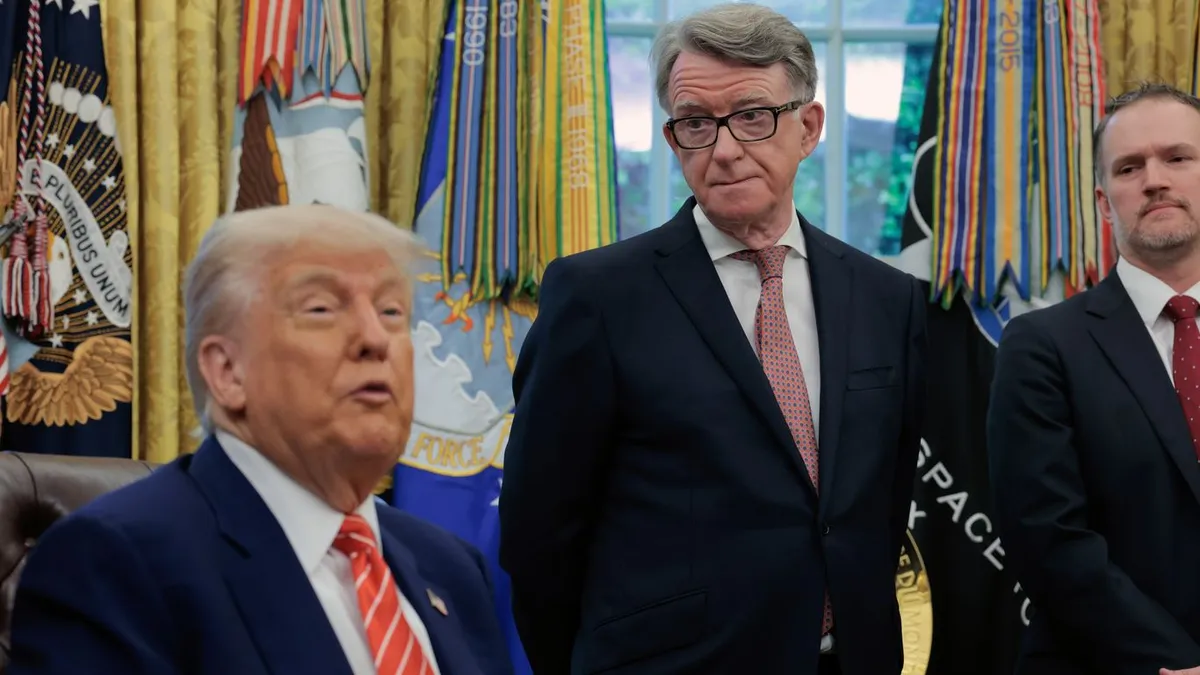
On Thursday, U.K. Prime Minister Keir Starmer took decisive action by dismissing Peter Mandelson, the British ambassador to the U.S., due to his connections with convicted sex offender Jeffrey Epstein. This significant move underscores the ongoing fallout from Epstein's notorious past and the implications it holds for public figures associated with him.
The controversy surrounding Mandelson intensified earlier this week when Epstein's so-called birthday book was released, reigniting discussions about his relationships with various influential individuals. In this book, Mandelson referred to Epstein as his "best pal," raising alarms and prompting scrutiny of his ties to the disgraced financier.
Following this revelation, additional emails between Mandelson and Epstein emerged, further amplifying calls for his removal from the ambassadorial position. According to reports from the BBC, the depth of Mandelson's relationship with Epstein was more extensive than previously acknowledged, which contributed to the Prime Minister's decision.
In light of the new information disclosed in the emails, Prime Minister Starmer instructed the foreign secretary to withdraw Mandelson from his ambassadorial role. Foreign Office minister Stephen Doughty addressed the House of Commons, stating that "the depth and extent of Lord Mandelson's relationship is materially different from that known at the time of his appointment." This statement highlights the seriousness of the situation and the government's commitment to addressing it.
An especially concerning aspect of the emails revealed that Mandelson suggested Epstein's first conviction was wrongful and should be challenged. This stance, coupled with the awareness of Epstein's victims, ultimately led to Mandelson's immediate withdrawal as Ambassador to the United States.
The British Embassy in Washington, D.C., has yet to respond to requests for comments from various media outlets, including Axios. Mandelson's connections to Epstein were not isolated; he was among several high-profile figures whose names appeared in Epstein's birthday book, which has since attracted widespread criticism. Notably, a controversial note and drawing that allegedly bore President Trump's signature also drew backlash, as did a note from former President Bill Clinton.
The White House has denied that Trump wrote or signed the controversial letter, but analyses by credible outlets such as The Wall Street Journal and The New York Times have suggested that Trump's signature resembles those from the 1990s and 2000s, raising further questions about his connections to Epstein.
The dismissal of Peter Mandelson highlights the ongoing reckoning with the legacy of Jeffrey Epstein and the broader implications for public officials linked to him. As investigations continue and new information emerges, the impact on political figures and their relationships with Epstein will likely remain a focal point in public discourse.